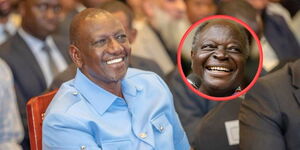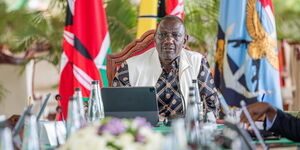An article published by the New York Times on Monday, August 31, has revealed a plan by US lobby groups to have Kenya lift its ban on plastics as part of the ongoing trade deal negotiations.
According to the American publication, a letter to the Office of of the United States Trade Representative by a spokesperson of the American Chemistry Council, details the plan to have the plan lifted to allow US firms to have their plastic wares traded in Kenya.
“We anticipate that Kenya could serve in the future as a hub for supplying U.S.-made chemicals and plastics to other markets in Africa through this trade agreement,” Ed Brzytwa's (spokesperson) reads in part.
The special Chemistry Council is made up by America's largest petrochemical companies.
In the dossier, the firms are allegedly looking to cushion themselves from the steep decline in the demand for fossil fuel products amidst the Covid-19 pandemic.
In 2019, American exporters shipped more than 453 tonnes of plastic waste to 96 countries including Kenya albeit branded 'for recycling'.
Industry leaders such as the ones lobbying for the lift on plastic ban typically have a strong voice in shaping trade policy, making their agenda a real cause for concern.
President Donald Trump's administration and the Kenyan government launched trade negotiations in early July 2019.
Economic pundits have stated that the trade agreement could be the most significant development in U.S-Africa trade relations since the African Growth and Opportunity Act (AGOA) passed Congress in 2000.
According to the U.S. Trade Representative (USTR), Ambassador Robert Lighthizer, the U.S.-Kenya agreement will become a model for future trade agreements with other African countries.
The move is the latest of President Trump’s aggressive pushes for more bilateral trade deals.
Trade between the two countries currently stands at an estimated Ksh100 billion annually, putting Kenya in the United States’ top 100 trading partners.
While the United States is a major destination for Kenyan exports, Kenya’s total U.S. trade is trifled by that with other partners.
Notably, U.S.-Africa trade has been on a sharp decline since 2008. On the other hand, African trade with China has soared, with the Asian nation devoting hundreds of billions of dollars to its Belt and Road Initiative, which comprises infrastructure investments across Africa.
However, the latest revelation by the New York Times, if proven true, will not go down well with environmental groups in Kenya and across the world.
In 2017, Kenya passed a stringent law against plastic bags. Two years later, the East African country was one of nations around the world that signed on to a global agreement to stop importing plastic waste.












